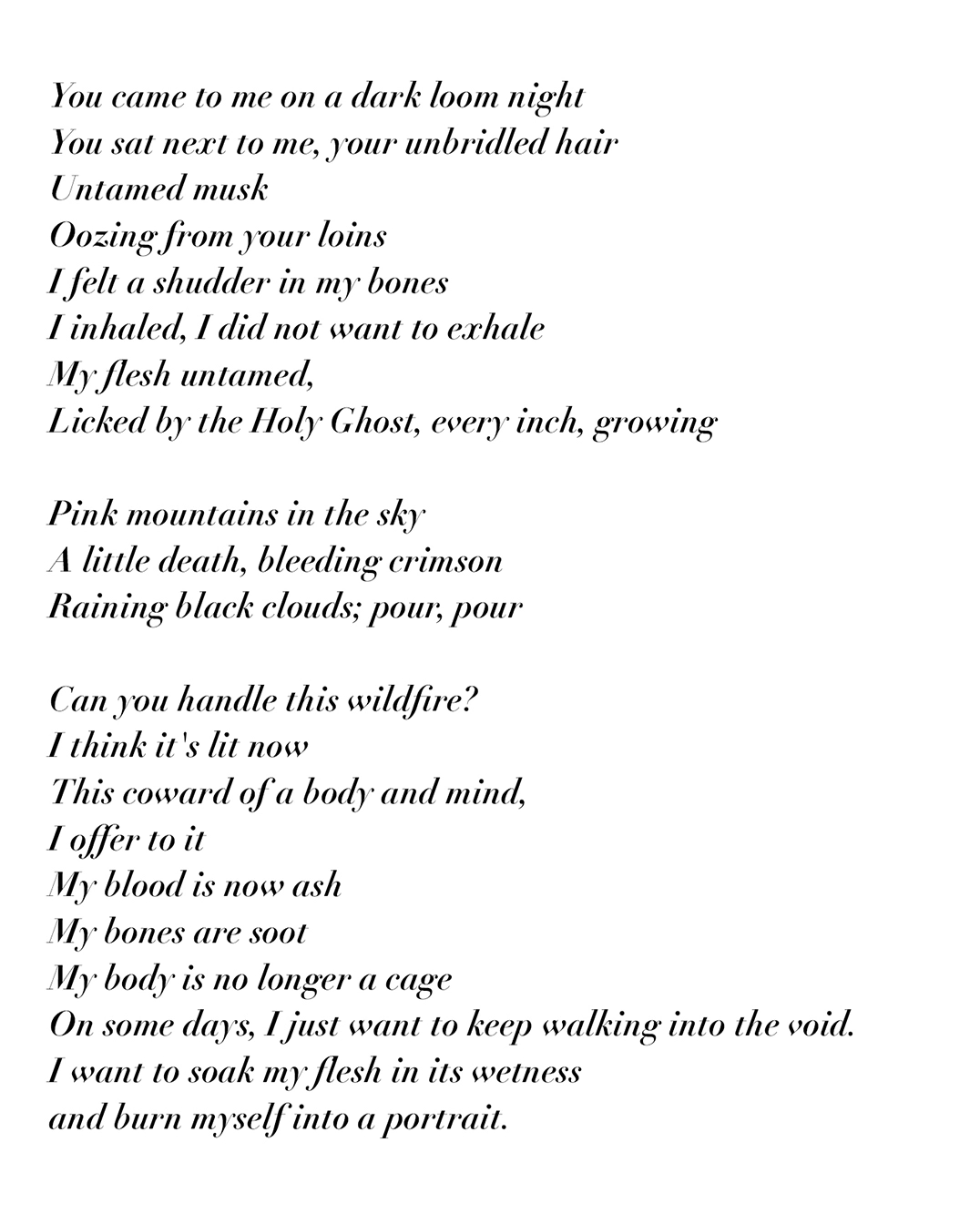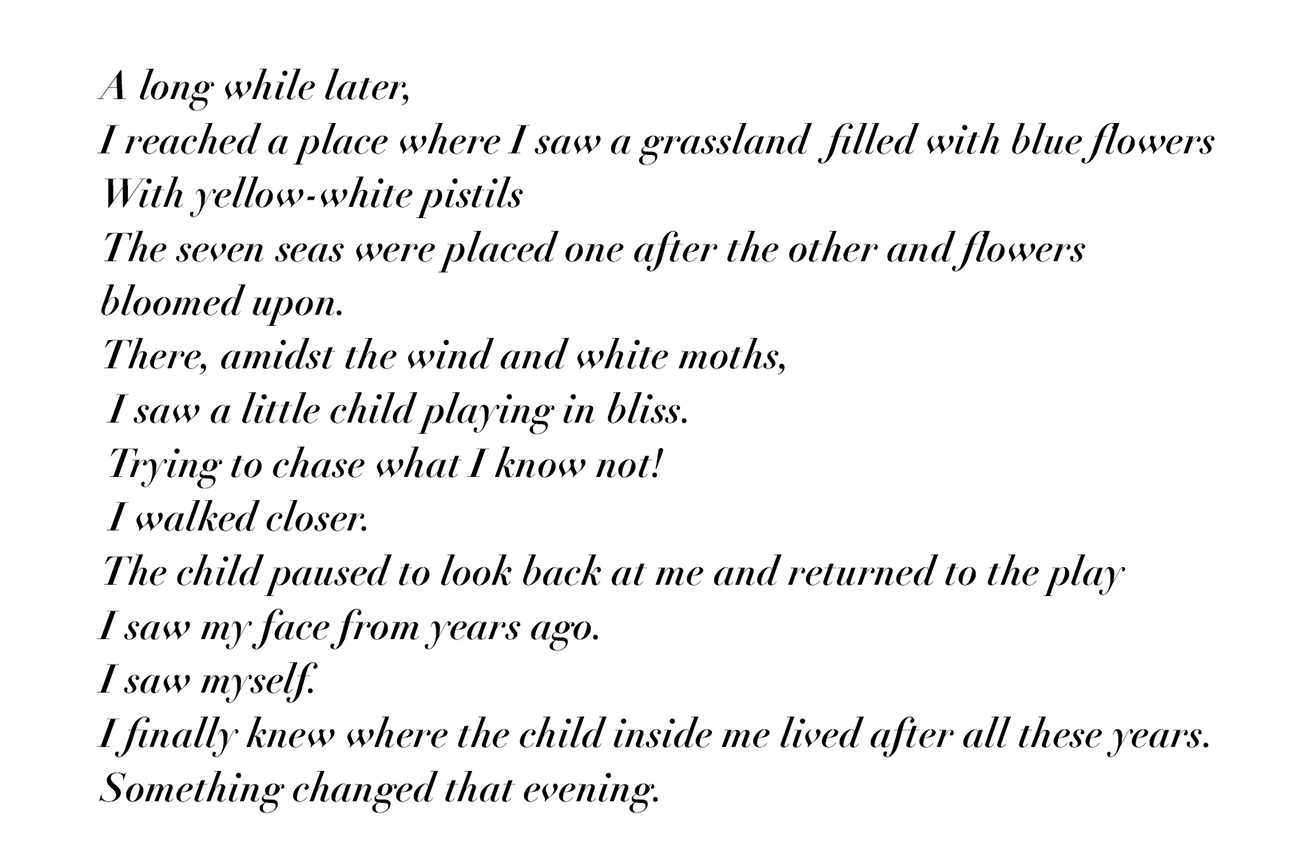Sound of the Beast
Taking inspiration from Kalidasa’s long poem ‘Ritusamhara’, in which specific elements of nature are personified as lovers, South-Goa-based Vivekananda uses the practice of psychic automatism to draw up feelings that live in the depths of their being, translating them into colours, patterns and bodies that come together in sensorial self-portraits. These multimedia works that represent the act of creating art are accompanied by the interdisciplinary artist’s poetic musings
1) REVISITING: Spring (Vasantha)

The first season, Spring, is about the act of revisiting. I called it an antidote to abandonment. I have an estranged relationship with my works, wherein I don’t come back to them once they are finished, and I can’t even look at them at times. I can’t sit with them or talk to them either, but there is always a sense of celebration and joy whenever I do see them because each one is a living entity in itself.
Here, in a cathartic moment, we get to a place where everything is overwhelming and it all seems to sink into the ground; our protagonist sits with this heaviness. In my paintings, there are spiral patterns symbolic of time, and in this one, the stag symbolises moving on to the next season.

2) HIBERNATION: Summer (Grishma)

Summer is about hibernation – lullabies and the world of dreams. As I rest, I try to absorb inspiration from all kinds of things and spaces around me. Dreams play a major role in my visual dictionary; I often borrow from my dreams, and a lot of things in my life make sense to me because of my dreams.
The tapestry of flora in the image is a metaphor for a dream – branching and growing out of me. The protagonist is clay-like, earthy – buried underground like a seed. The network of mycelium grows all around as the protagonist takes everything in, hibernating. There is not much activity, just absorption – soaking in the surroundings.
3) POSSESSION: Monsoon (Varsha)

Monsoon stands for possession. Sometimes, I just feel like the “blue one”. It’s an expansive sensation; I truly feel as if my entire identity gets dissolved, but then lightning strikes and a channel of ideas – inspiration – pours through me. I become a vessel that holds this inspiration.
I have tried to picture our protagonist walking from the summer sleep into the sea and laying down there. This is the moment when the protagonist is possessed.

4) THE DANCE: Early Autumn (Sarath)

Early Autumn’s dance is an extension of the possession. It’s the act of creating art. Ferocious moments settle into subtle, graceful dance poses as ideas take form. It’s a state of frenzy, a state of trance, but that’s only Early Autumn.

5) HOME: Late Autumn (Hemantha)

Late Autumn is about coming home. I don’t think that works of art are ever complete; you simply choose to abandon them at a point. You choose to stop working on them, but you do it when you feel the time is right. In Late Autumn, I take in my entire universe of work. It all comes together, and the landscape feels like home.

6) PENANCE: Winter (Sisira)

Once the act of creation happens, exhaustion takes over. There are questions, doubts, discomfort, and it suddenly feels like the frosty winters – extremely cold and unforgiving. I have realised that the only way to make peace with this is to look at the entire period as one of penance – the stage of pollination before bloom – where I am not forcing myself to consume things and am instead trying to find silence in myself and my surroundings. I would compare it to a long period of meditation. But Winter is also about the hope that I am going to revisit the familiar and transition into Spring.